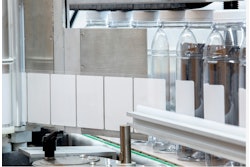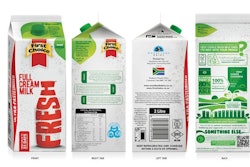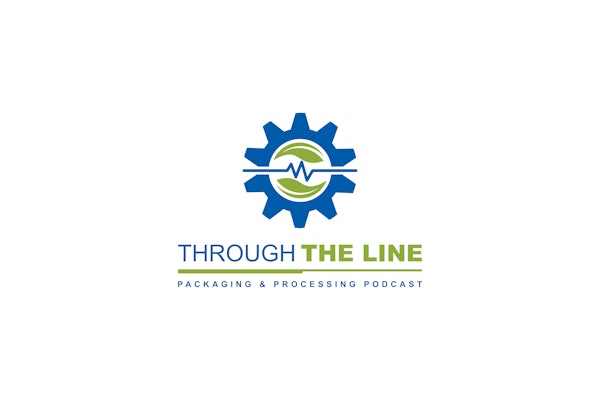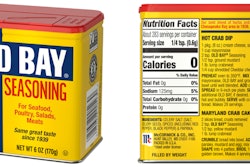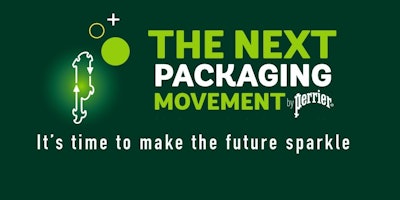
Perrier has launched The Next Packaging Movement by PERRIER®, a sustainable innovation program to enable leading innovators, experts, and changemakers to collaborate around packaging solutions. With this ambitious project, Perrier says it aims to broaden thinking and deliver actions on the topic of sustainability.
Furthermore, says Perrier, The Next Packaging Movement is designed to expand efforts beyond the development of 100% recycled and recyclable packaging to support innovators and develop solutions that reimagine packaging from sources to end-of-life, with the potential for delivering positive environmental and social impact.
Learn what other beverage brands are doing to make their packaging more sustainable in these articles from Packaging World:
“Regional Coke Labels Sacrifice Branding for Recycling Education”
“Live from TPC: Every Bottle Back Seeks to Close the Loop on PET”
“PepsiCo Accelerates Plastic Waste Reduction Efforts”
“Chlorophyll Water’s Bottle Designed to be 100% Landfill Biodegradable”
Having announced a call for applications in April 2019, Perrier received approximately 90 submissions from a diverse range of organizations, including NGOs, startups, and researchers from all over the world. The selection process for winning applications was incredibly competitive, the company says, weighing key factors such as the breakthrough dimension of the proposed solution, the potential environmental and social benefit, and its ability to scale across the sparkling water market and the broader beverage industry.
At the 2020 ChangeNOW summit in Paris, Perrier presented the program winners that, with the help of Perrier, will bring their solutions to market by 2025. Each will receive technical, operational, and financial support, with a minimum of €100.000 (roughly US$109,000) per project up to €1 million (approximately US$1.09 million) in total. The winning projects address different aspects of the packaging challenge, ranging from source materials, alternative solutions beyond the bottle, and packaging end-of-life.
And the winners are…
1. Biotic: A bio-based and biodegradable plastic, produced from agricultural waste while also creating well-paying jobs for women in Africa where the project is based.
2. Flexikeg: An “ecolaboration” to deliver water and other beverages in an innovative and reusable flexible keg, with the aim to reduce plastic waste and carbon emissions.
3. PlastiSkul: Micro factories for waste transformation, an integrated-approach model mixing low- and high-tech solutions, from waste collection to transformation, that can be implemented in developing countries, with a strong social impact, including an education/training program for local entrepreneurs.
Says Perrier International Business Unit Director Philippe Gallard, “Perrier has always been a brand that keeps pace with the times, evolving with its consumers and innovating while remaining true to its core values. This is why we are proud to invest in these three exciting ideas to accelerate their development. We hope that with The Next Packaging Movement by PERRIER® we can contribute to a more sustainable future, leading through bold actions and bringing to market innovative projects.”
In developing this initiative, Perrier says it brought together experts from all over the world to create a diverse network working together towards a great purpose. The Next Packaging Movement by PERRIER® has facilitated a unique and multi-disciplinary sharing of knowledge, skills, and expertise to collaborate around packaging solutions. To develop this initiative, Perrier is partnering closely with SoScience, a European-based organization focused on responsible research and innovation. The brand has also created a dedicated Task Force made up of external leaders in materials sciences, environmentalists, entrepreneurs, and changemakers to identify the most promising projects and to mentor the winners.
The Task Force includes such notable members as Dr. Jiang Nanqing, Secretary-General, China plastics reuse and recycling association; Philipp Meister, Senior Director Sustainability Strategy of Adidas Group; Sian Sutherland, A Plastic Planet NGO Founder; and Dr. Sabrina Cipullo, Solar Impulse Label Assessment Leader.
PMMI, the Association for Packaging and Processing, States Position on Sustainability
PMMI, the Association for Packaging and Processing, believes:
· Packaging plays a critical role in our world. It safeguards our food, protects our medicines, shields our purchases, and allows for the transportation of goods; protecting what keeps us healthy and happy.
· The packaging industry has a responsibility to limit its environmental impact. We are driving innovation across all packaging types, throughout the supply chain, to increase the use of recycled materials and reduce the amount of packaging being used.
· Making packaging as sustainable as possible is not about eliminating any single material, but rather making smart, eco-friendly choices that help packaging meet the needs of consumers, and the environment.
· The solution requires a combination of many things, from infrastructure to education to innovation. Everyone has an important role, including consumers,
· The move toward sustainable practices, products, and materials is ever-present and a priority in the packaging industry. Sustainable solutions are being thought about and innovated every day so that packaging can continue to play an important role in our lives.
We need packaging to safeguard our food, protect our medicines, shield our purchases, and transport our goods; packaging protects what keeps us happy and healthy. Because of its essential place in our world, we have a responsibility to limit its environmental impact.
The solution requires a combination of infrastructure development, education and engagement, innovation, and clean-up efforts. Everyone has an important role, including consumers, who must play an active part and be willing to share in the cost of innovation. Our industry is driving innovation, and we see this in the ongoing push to improve sustainability across all packaging types, throughout the supply chain.
This is true for a variety of packaging formats; from the plastic used on bottle caps, to polyethylene terephthalate (PET) bottles, to recycled corrugated card used in cartons and cases and recycled, high-density polyethylene (rHDPE) or recycled polyethylene terephthalate (rPET) film.
Sustainability initiatives in packaging have advanced considerably, leading to an increased use of recycled materials, as well as a reduction in the amount of packaging being used. This is being addressed by redesigns to reduce the footprint of the packaging, careful monitoring of the amount of packaging used to reduce wastage, increased use of biodegradable materials like BioFilms, and production of thinner packaging, be that thinner carton walls or thinner film on a wrapping machine. And to facilitate this, OEMs are developing machines with improved functionality to minimize waste and maximize productivity speeds with innovative and environmentally friendly materials.
These are just some of the examples of what the packaging industry is doing—the speed of innovation is rapid. PMMI reports on sustainability issues and innovations regularly, published daily via our Media Group’s digital platforms, monthly in Packaging World magazine and annually in our Innovations Report—a roundup of technologies seen at PACK EXPO, where there is an emphasis on education, ideas, and technologies advancing sustainability efforts.


